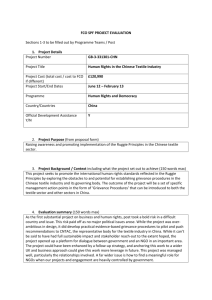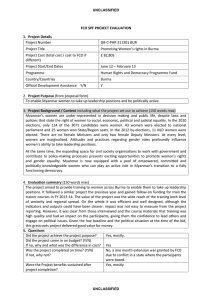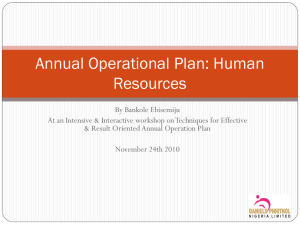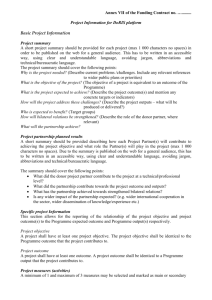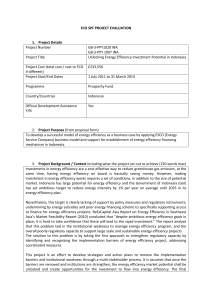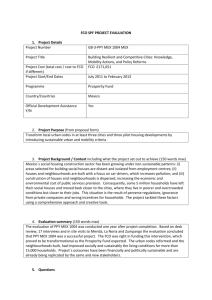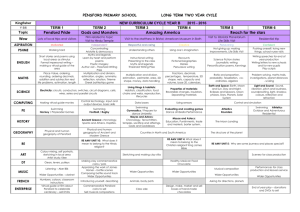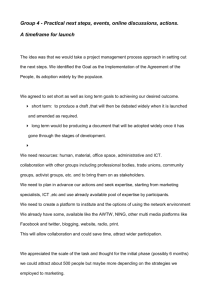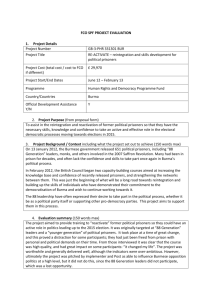HRDD evaluation: promoting legal protection for the media
advertisement
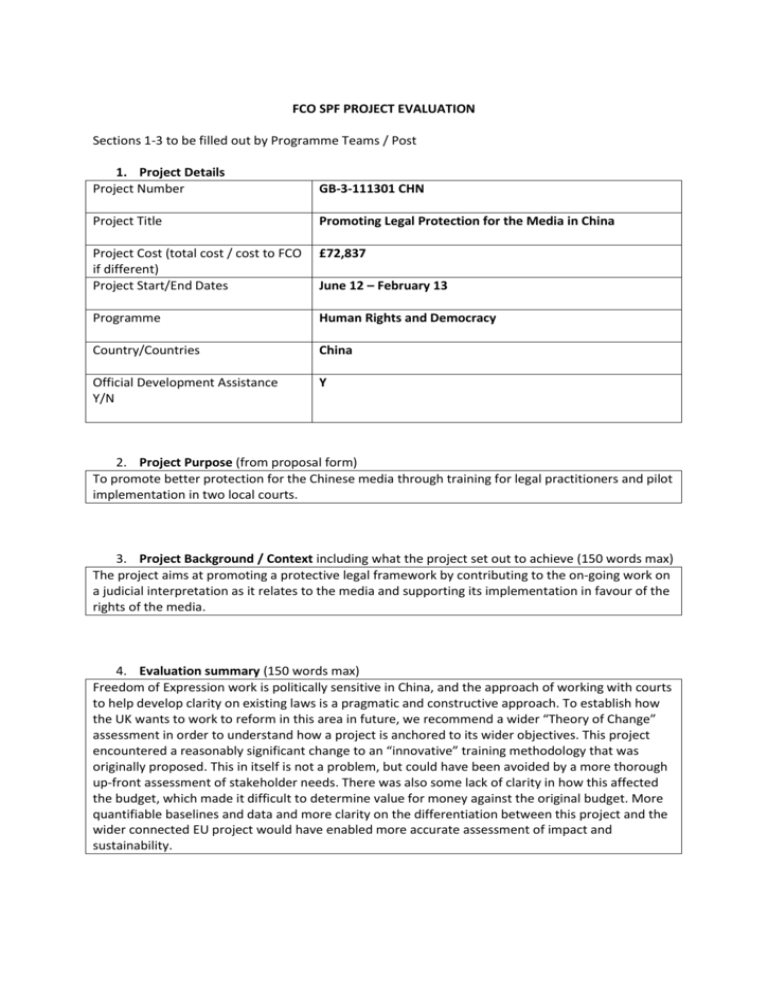
FCO SPF PROJECT EVALUATION Sections 1-3 to be filled out by Programme Teams / Post 1. Project Details Project Number GB-3-111301 CHN Project Title Promoting Legal Protection for the Media in China Project Cost (total cost / cost to FCO if different) Project Start/End Dates £72,837 Programme Human Rights and Democracy Country/Countries China Official Development Assistance Y/N Y June 12 – February 13 2. Project Purpose (from proposal form) To promote better protection for the Chinese media through training for legal practitioners and pilot implementation in two local courts. 3. Project Background / Context including what the project set out to achieve (150 words max) The project aims at promoting a protective legal framework by contributing to the on-going work on a judicial interpretation as it relates to the media and supporting its implementation in favour of the rights of the media. 4. Evaluation summary (150 words max) Freedom of Expression work is politically sensitive in China, and the approach of working with courts to help develop clarity on existing laws is a pragmatic and constructive approach. To establish how the UK wants to work to reform in this area in future, we recommend a wider “Theory of Change” assessment in order to understand how a project is anchored to its wider objectives. This project encountered a reasonably significant change to an “innovative” training methodology that was originally proposed. This in itself is not a problem, but could have been avoided by a more thorough up-front assessment of stakeholder needs. There was also some lack of clarity in how this affected the budget, which made it difficult to determine value for money against the original budget. More quantifiable baselines and data and more clarity on the differentiation between this project and the wider connected EU project would have enabled more accurate assessment of impact and sustainability. 5. Questions Did the project achieve the project purpose? Did the project come in on budget? (Y/N) If no, why and what was the difference in cost? Was the project completed on time? (Y/N) If not, why not? Were the Project benefits sustained after project completion? Yes Yes – but requires more evidence on the substance of spend Yes Difficult to assess 6. Overall Red / Amber / Green rating for project Overall Rating for project (put X in relevant box) Red Red Amber Amber Green X Green Guide to overall rating: Green- project performed well under each of the evaluation criteria: relevance, efficiency, effectiveness, sustainability, impact and management Green/Amber – project performed well under most criteria and adequately in others Amber/Red – project performed adequately under some criteria but poorly in others Red – project performed poorly under most criteria 7. Top 5 Lessons learned 1) The design of this project would have benefited from a clear link to a wider “Theory of Change” on how the project aims to move China towards wider reform goals on freedom of expression. 2) While leveraging funds with the EU can be good practice, it is important to be clear at the design stage how UK funding adds value to such wider initiatives, and to be clear on how our funding and activities link to connected projects. It’s also important to secure access to EU narrative and financial reporting in order to assess overall impact of UK funding. 3) When significant changes to activities occur through the life-time of the project, it is important that these are agreed and recorded in writing with the implementer, and to make sure that changes to activities and/or budget are clearly recorded in the reporting. Ensure as full as possible consultation with beneficiaries to agree key activities in the design phase to reduce risks of significant changes. 4) It would be beneficial, where possible, to have clear base-lines at the start of a project. This enables, on project completion, direct progress of project delivery to be assessed more clearly. This was supplied by the implementer on request, but it would be ideal to include this in paperwork so it is fore-front throughout the M&E stages. 5) It is important to monitor impact by active follow up after project completion, and especially as it is leveraged to wider funding such as with the EU. 8. Recommendations for future projects Arbitrary use of press laws is a serious and politically sensitive problem in China, and therefore clarifying the legal interpretation of those laws is a pragmatic approach. Freedom of expression is one of the most important enabling factors for human rights, particularly in China. Accepting the difficulty of getting much traction in this area, the BE Beijing should consider a full scoping assessment in order to explore how best to approach this work and to test assumptions that this current approach is the best model for change. For example while the stakeholder outreach is wide in this project (bringing judges and legal media advisers together) they are not truly independent bodies, and given the sensitivity of the issue a more technical and legalistic approach has been applied, but could the UK push the boundary more?
